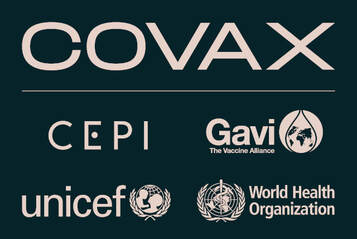
Unless virtually every human being is vaccinated, Covid-19 will never go away or even become endemic like the cold or flu. The Delta and Omicron variants are examples of what can happen when vaccines become the province of only rich nations. Vaccination rates of at least 60 percent could not keep the West safe from these variants that began in other countries where vaccination rates are miniscule. Unless we are all protected, none of us will be protected. Variants will keep on coming and we may never put Covid-19 behind us.
The U.S. could and should manufacture and deliver enough Covid-19 vaccines so that the entire global population can address the pandemic. Thus far, the COVAX initiative, the worldwide effort to get vaccinations into the arms of the global population, has only been able to deliver a small percentage of vaccines to the world’s developing nations. It has fallen far short of what is necessary.
Only the U.S. has the wherewithal to get this done. We have the manufacturing facilities that have produced the strongest Covid-19 vaccines. We have the means of dramatically stepping up production via the Defense Production Act. And we have the best delivery systems in the world.
U.S. global positioning and influence has taken a big hit in the 21st century. Our leading foreign policy “exports” have been George W. Bush’s disastrous Iraq War and Great Recession, Barack Obama’s Syrian “line in the sand,” Donald Trump’s capricious pulling out of the Paris Climate Agreement, the Iran nuclear weapons treaty and the Trans-Pacific Partnership, along with his self-defeating “America First” policy among other inanities, and Joe Biden’s chaotic Afghanistan withdrawal.
Perhaps the only positive among all this negativity was Bush’s Emergency Plan for AIDS Relief (PEPFAR), through which the U.S. provided $90 billion in funding for African HIV/AIDS treatment, prevention, and research, making it up to then the largest global health program focused on a single disease in history. PEPFAR was a huge success, saved millions of lives and garnered the U.S. both gratitude and positive carryover from beneficiary countries. It was the poster child for winning global health diplomacy.
Now we have an opportunity to do it again.
Although the two most effective vaccines—mRNA-based Pfizer and Moderna—have some challenges—Pfizer requires extreme cooling during shipping and storage; and the government is embroiled in a patent dispute with Moderna—there is an alternative: Corbevax, a more traditional vaccine developed by two Texas Children’s Hospital/Baylor College of Medicine physician-researchers. Corbevax has been shown to be 90 percent effective and is being used in India. It is incredibly inexpensive to produce and easy to ship and store. The costs of such a program are small compared to the costs of a continuing pandemic.
By vaccinating the world, we would save millions of lives and relieve the enormous stress on under-resourced national healthcare systems. We would also benefit ourselves by taming Covid-19 here at home and eliminating potential new and lethal variants that could continue to jeopardize our own citizens and our economy.
Moreover, this should not be a one-time initiative. We should also commit to providing boosters as long as they might be needed. For this component of the program, we could urge other developed nations to join in.
It is only the U.S. that has proven vaccines and delivery capability to bring this off. Russia’s Sputnik V vaccine and the two Chinese vaccines that their countries have distributed widely have been a disappointment. They are of questionable efficacy and have disappointed most of the world’s developing nations.
The benefits of such an ambitious U.S. program extend far beyond health. America’s geostrategic influence will carry over into other areas of global competition: rebuilding trust in U.S. competence; the democratic battle against the totalitarian onslaught now afflicting the West; and empowering our burgeoning rivalry with China.
Everyone would profit from a generous U.S. global vaccination initiative.
Dick Hermann
January 8, 2022


 RSS Feed
RSS Feed